A Beginner's Guide to Starting Your Own Fitness Studio
It's many a gym-goer's fantasy: Open your own fitness studio, where you can stock your favorite equipment, schedule convenient classes, and harness the top fitness talent to teach high-energy, heart-pumping classes. Of course, it's a pipe dream for most of us, but not for these ambitious women. They've harnessed their passion for fitness to start successful studios in a range of disciplines from cycling to Pilates to barre. If you've been curious about doing the same, use their top tips, and go for it!
Prepare Yourself

Pure Barre
Michelle G. Davidson, owner, Pure Barre, Washington, D.C.
Previous career: Federal insurance tax lawyer
1. Be prepared to work. Davidson was nervous that owning a studio may not be challenging enough after a career in law, but another Pure Barre owner assured her she didn't need to worry-and Davidson soon discovered she was right. "My number one piece of advice is to prepare yourself: Starting a studio is more work than meets the eye," she says.
2. Hire slowly. "Creating a strong, kind, confident, and thoughtful team is our top priority," Davidson says. "I've gotten better at knowing who's the best fit, though of course mistakes are inevitable. The best advice I've received is to hire slowly, fire fast."
3. Allow your team autonomy. "If you mirco-manage, you're not giving your staff the chance to be excellent decision-makers on their own, but when you empower your team members, they learn quickly just how capable they are," she says. "Of course, that's why the previous point is so important!"
Stay on Top of Everything

Kourtney Little
Kourtney Little, co-founder, Smart Barre, San Antonio
Previous career: Executive assistant
1. Pay attention to detail. "Even when it exhausts me, it's vitally important to always stay on top of every aspect of the company, especially when it's based on a schedule that your clients depend on," says Little. "Never assume anything is taken care of until you have confirmed and reconfirmed it!"
2. Multitask. Be prepared to wear many hats. As any small business owner will tell you, running a fitness studio involves many different roles-bookkeeper, insurance specialist, human resources, customer service, management, marketing, technique, class quality control, and more-all wrapped into one, she says.
3. Make it look easy. "Many hours of labor and love go into creating the peaceful, focused environment we want our clients to experience at our studios. Like a graceful ballerina, if it looks easy to run our studios, then we're doing something right!"
Make Clients Feel Like VIPs
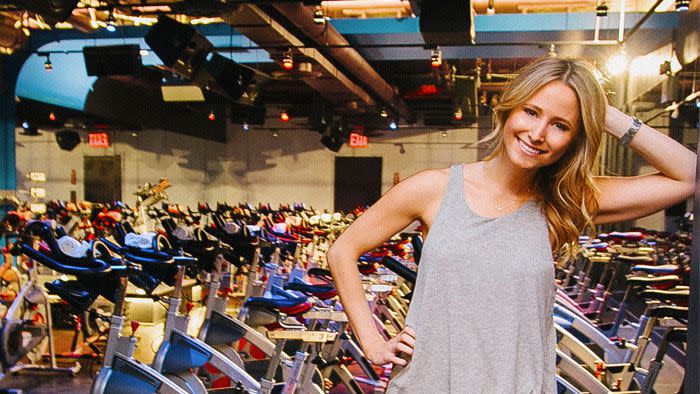
Cyc
Alexandra Blodgett, founding partner, Cyc, New York
Previous career: Event planner
1. Treat clients like family. One thing Blodgett learned from working at a private jet company was how to make clients feel important. "At Cyc, we do the same thing even though we're selling $25 bikes, not $250,000 jet memberships. Not only is it a super intense workout, it's also a welcoming studio where everyone is treated like a VIP."
2. Narrow your brand's message. "We had to have a really focused pitch since there are so many other concepts out there," Blodgett says. "So we picked a name to convey that the workout is tough but fun: We're going to get you ‘Cyc'ed.'" Plus, she makes sure that the cyclogists (instructors) are friendly and entertaining-not drill sergeants.
3. Play to your team's strengths. "You're not the only one capable of managing the details," Blodgett says. "Delegate, watch your employees become proactive, and listen to others' ideas to build a team based on trust. Bossy is fine, but being that way isn't so effective when most of my employees are women."
Take Risks
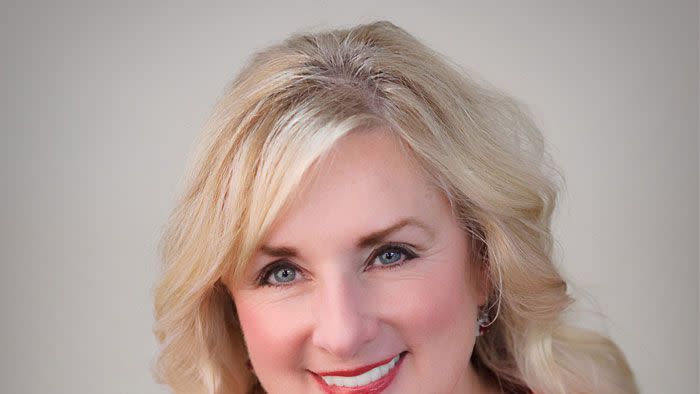
Suzy Boerboom
Suzy Boerboom, founder and CEO, Welcyon Fitness After 50, Minneapolis; Sioux Falls, SD; Fargo, ND
Previous career: Registered nurse
1. Believe in your work. Working as a nurse in long-term care and assisted living inspired Boerboom to flip to the preventative side of healthcare and start a gym for people over 50. "I've always been fueled by our mission to redefine aging in America-my husband and I are passionate about changing lives," she says. "If you want to own your own business, make sure it has a noble mission that you believe in."
2. Take chances. "When you start a company, there's both risk and excitement, and you don't really know how big the risk is going to be until you jump in. So as entrepreneur, you always need to weigh risk versus reward."
3. Expect fear. "The natural fear of failure can be all-consuming. But don't let it stop you," she says. Your gender or age should never limit you either-Boerboom was 60 when she started Welcyon.
Foster Community
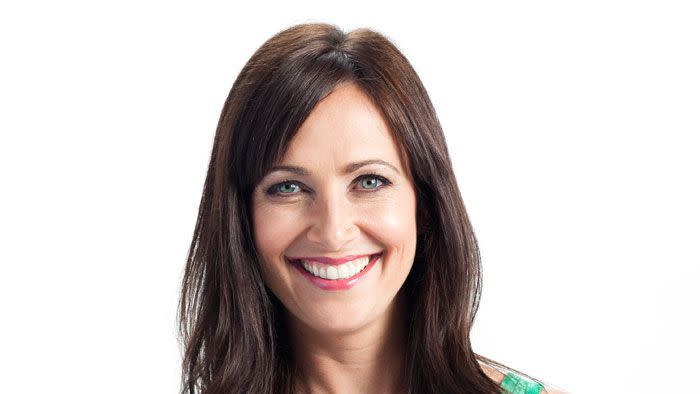
Leanne Shear
Leanne Shear, co-founder, Uplift, New York
Previous career: Full-time writer
1. Create a community. "A huge part of the Uplift brand, an all-women boutique studio, is the social aspect," says Shear. "It's not only a place for women to get a great workout, but we also created a communal area where clients can hang out, make friends, and just relax in an environment that really engenders camaraderie."
2. Speak up. As a writer, communication was at the centerpiece of Shear's previous job, and it plays a major role as a studio owner as well. "Communicating with my partners has kept us a solid trifecta with hardly any issues, and communicating openly and honestly with our clients keeps them coming back for more," she says.
3. Learn to adapt. "Just when you think you know what you're doing, some new aspect of the business shows up," says Shear. "That simply means learning from the myriad mistakes you inevitably make and improving for the next go-round. Just like personal development, marketing a brand is an evolution too."
Practice Patience
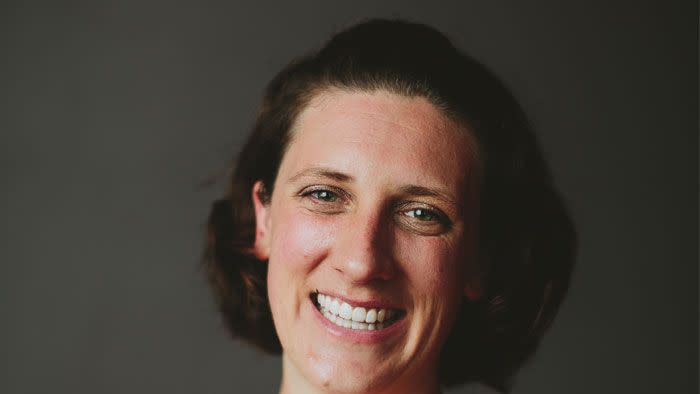
Elizabeth Sanders
Elizabeth Sanders, owner, Yoga Heat, Grand Rapids, MI
Previous career: Journalist and corporate communicator
1. Build your brand before you invest. Partner with other small businesses, fitness centers, or clothing stores to offer free or low-cost events. "I am an ambassador for Lululemon, and I taught weekly at their showroom before I started my studio. It was a good way for me to get to know the community and determine whether my idea of having an athlete-focused studio would be a welcome one," Sanders says.
2. Be patient. "Don't be disappointed when no one comes to class," Sanders says. Use that time to practice, meditate, or be grateful for the space in your schedule. "If you offer a good service, the students will come," she adds.
3. Know when to step back. In the beginning, Sanders focused on her teaching as the center of the brand, but then she moved away from the center to let other teachers represent the studio. "If I wanted to grow the business, I could not teach every class on the schedule," Sanders explains. "Now students who come to the studio have a variety of teachers to choose from and may not even know I am the owner."
Deliver What Clients Want
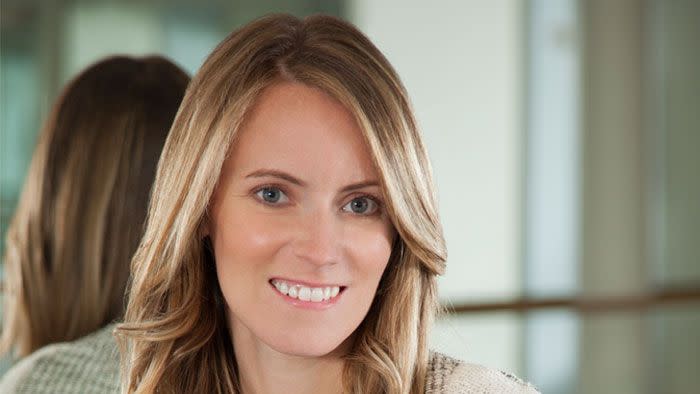
Jeanette Simon
Jeanette Simon, owner, Flex Studios, New York
Previous career: Corporate event planner
1. Determine what business model works for you. While Simon originally opened her studio with a partner, she later decided to go it alone. While having a partner provides some positives such as experience, training, and support, overall, Simon says she disliked the lack of autonomy.
2. Know your clientele. "Learn what it is they want, and deliver," says Simon. "When we re-branded as Flex, we had to tailor our program to the market in order to properly reflect the kind of workout experience New Yorkers wanted-fast-paced, effective workouts that vary in discipline, all in one space."
3. Surround yourself with people you trust. "Hire only the best!" she says. "It's so important to me that the people who work at the studio represent your vision for the brand and embrace the values you find important, and that you work together to deliver unparalleled excellence."
Follow Your Instinct

Bari Studio
Alexandra Bonetti Perez, founder, Bari Studio, New York; Summit, NJ; Newport Beach, CA
Previous career: Management consultant
1. Create a feedback system. "One lesson I learned from consulting was the importance of gathering client feedback. Getting better at what we do every day is ingrained in our company culture."
2. Own what you're good at. "Our biggest mistake when we were starting out was being shy about strengths. Within months, it became apparent that we were experts in delivering results-clients had success stories before we were even a year old-but we were too timid and didn't feel ‘entitled' to celebrate these successes because we were so new to the industry," she says.
3. Trust your gut. Women have an extraordinary sense of intuition, and too often we don't feel confident enough to believe in ourselves, Perez says. "But when we lead with passion and love, the answer to whatever you're trying to solve is always within us."
Be Consistent

Rebecca Black
Rebecca Black, owner, Bexa Body Fitness, Westerville, OH
Previous career: Children services caseworker
1. Fill a need. After successfully shedding 40 pounds, Black realized there was something lacking in the fitness industry: It was difficult to find the emotional and mental support she needed on her weight-loss journey. She became a certified personal trainer, but she still saw many fitness facility owners eating junk food at the front desk as her clients checked in. That spurred her to open a gym where women would feel supported in their fitness goals.
2. Create a clear message. "Develop a mission and value statement to present to not only your prospective clients but also employees," Black says. "Sending a consistent message is key to branding." She learned the hard way: Though she originally focused on her personal story in her company's branding, she soon realized that doing so took away from other services or trainers she might want to add down the road.
3. Watch the spending. "One of my rookie mistakes was spending money on little things like embroidered logos on my clothes, which adds up," she says. "Whatever you think your budget will be, add 30 percent more!"
Be a Numbers Woman
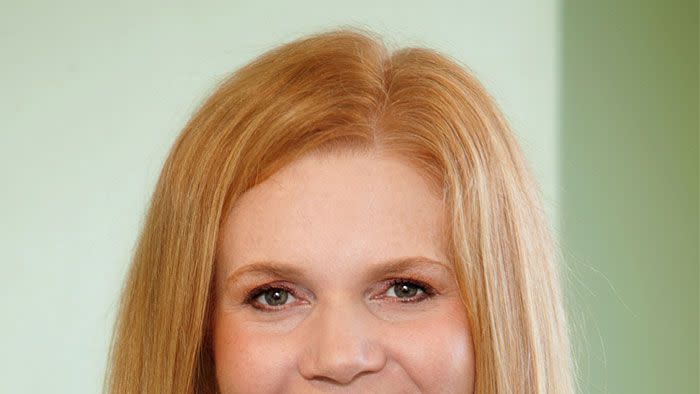
Darline Yatim
Darline Yatim, owner, Shrewsbury Health and Racquet Club, Shrewsbury, MA
Previous career: Retail management and human resources
1. Beware of scams. "I'm a sucker for a good salesperson," says Yatim. She wishes she had researched the remodeling company she used to redo her facilities more closely-several things they built had to be replaced or repaired far sooner than they should have.
2. Name the right price. "My retail background helped me understand my market," says Yatim. Membership prices are reasonable, but she knew parents in her area would pay more for quality programming, especially when it's for their children.
3. Know your numbers. "Just because you're fit and love working out doesn't mean you should start a fitness studio-there are budgets and goals that need to be met," she says. Be aware of how much money you'll need for the next six months, who's handling it (front desk staff, bookkeepers, trainers), and how much you're spending on a daily basis.
Teach

Jessica Bashelor
Jessica Bashelor, owner, The Handle Bar (cycling studio), Boston
Previous career: Sales and marketing coordinator
1. Keep it simple. "The biggest rookie mistake I made was offering too many promotions, too many pricing options, and too many class types. Keeping these easy to understand makes life easier on the consumer, and much easier on the staff," Bashelor says.
2. Don't worry about the competition. "Focus on your product, your brand, and your instructors, and forget the rest," says Bashelor. "If you keep your team happy and excited, and stay true to your original vision, the business will come, and then competitors will worry about you, rather than the other way around."
3. Master your craft. Teach classes! "Represent the business as an instructor," says Bashelor. "Instructing is my favorite part of the day, and it allows me to have a critical eye for talent and the ability to offer advice to my existing team."
Dive In

Daniel Cavazos; Aylin Gungor
Rebecca Foon and Sarah Neufeld, co-founders, Modo Yoga NYC, New York
Previous careers: Musicians
1. Just do it. "We really didn't know what we were getting into, but we dove in-and then figured out how to swim," says Foon. "Sometimes I laugh about how green we were in the building of a business like this one, in such a city as New York, but we trusted in our capacity to adapt and rise to challenge, and we've learned so much," Neufeld adds.
2. Find mentors. Foon and Neufeld, who were both in bands before becoming yoga instructors, had role models from the Modo Yoga community in L.A. to help them figure it out. "We also met some sweet people in NYC who were into what we were doing and wanted to help us rock it," says Foon.
3. Figure out your personal goals. "Take some time to come up with and write down your primary aim as a person, and translate that into your business vision," says Neufeld. "This way every aspect of your brand aligns with this aim."
Try Something New
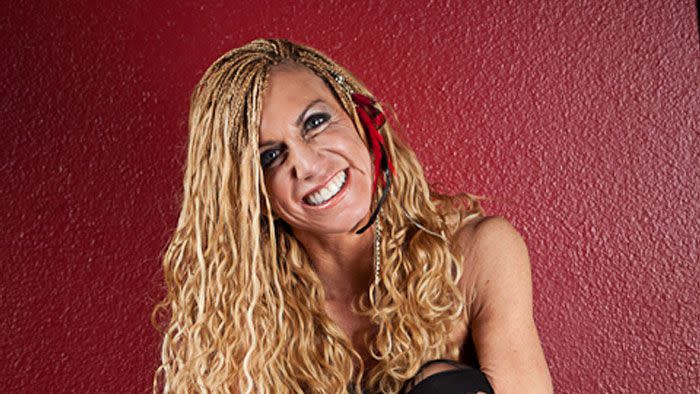
Lori Lowell
Lori Lowell, owner of 10 Gold's Gym franchises, Aspen, CO
Previous career: Group fitness instructor
1. Rethink stereotypes. "I wanted to soften the image of Gold's, which tended to have a stigma that you have to be in shape before you join," Lowell says. "Especially as a female in a male-dominant industry, I wanted to make sure everyone felt welcome, women especially."
2. Dare to be different. For Lowell's latest location, she's working on a unique concept that combines fitness and music. The gym will offer exciting, music-based classes like pole, Pound, aerial yoga, and mixed martial arts, and have open-mike nights, DJs, and other artists come and perform.
3. Empower your employees. Lowell created a 45-page "member experience manual" and a training program that her staff must complete before coming on board. "They have to memorize our philosophy, and pass a test before beginning work," she says. "We want our employees to say, ‘Wow, I love working here.' Work should be an enjoyable experience. Plus, happy employees make happy members, and happy members don't leave."

